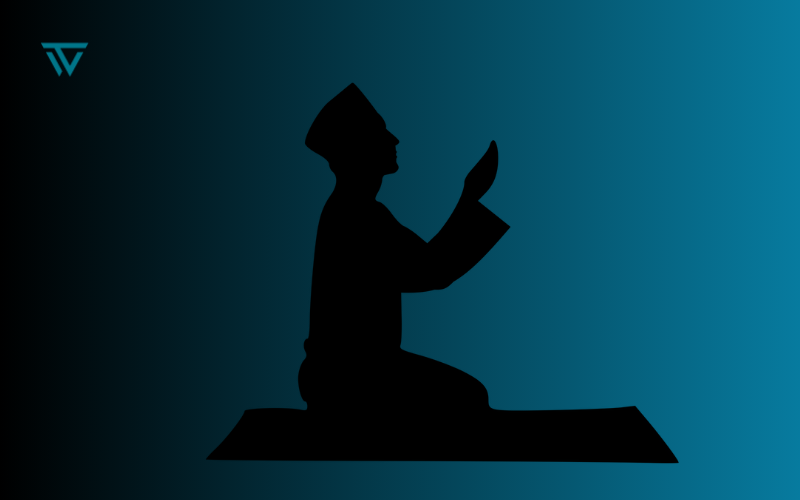Turning Back to Allah: What Does Allah Expect From Us?

Have we ever stopped to wonder — what does Allah (Subḥānahu wa Taʿālā) truly want from us? Does He expect each of us to live a perfectly obedient life, fulfilling every obligation without fail and never slipping into sin? Is divine perfectionism His goal for us? Could He not have created a flawless ummah if He so willed? Or does He value something deeper — like turning back to Allah with sincerity?
Let’s go back to the beginning of human creation for clarity.
Humility in Islam: Why Allah Created Humans Despite Angels
Before humanity, Allah had already created angels who worship Him constantly. The jinn existed too — among them was Iblis, who had worshipped Allah for thousands of years. Yet, despite this, Allah decided to create human.
When Allah informed the angels of His intention, they questioned the decision, highlighting that humans would spread corruption and bloodshed. After all, angels were already engaged in flawless worship. Allah responded:
إِنِّي أَعْلَمُ مَا لَا تَعْلَمُونَ
“Indeed, I know that which you do not know.”
(Surah Al-Baqarah, 2:30)¹
So, what made humans — specifically Adam (peace be upon him) — special?
The Test of Obedience: Iblis vs Adam
After creating Adam, Allah commanded all the angels and Iblis to prostrate to him. The angels obeyed instantly. But Iblis refused. Why? Because Adam was made of clay, and Iblis was made of fire — and he believed that made him superior.
When questioned by Allah, Iblis presented his logic without remorse. He didn’t deny Allah’s greatness — he simply refused to obey one specific command because his ego got in the way.
أَنَا خَيْرٌ مِّنْهُ خَلَقْتَنِي مِن نَّارٍ وَخَلَقْتَهُ مِن طِينٍ
“I am better than him. You created me from fire and created him from clay.”
(Surah Al-A’raf, 7:12)²
Now compare that to Adam.
Adam’s Response to Mistake: Humility Over Ego
Adam was placed in Paradise and told to avoid a particular tree. But he eventually ate from it, influenced by Iblis. When Allah confronted him, Adam didn’t make excuses. He didn’t blame Eve. He didn’t try to justify the sin.
Instead, he immediately turned back to Allah and said:
رَبَّنَا ظَلَمْنَا أَنفُسَنَا وَإِن لَّمْ تَغْفِرْ لَنَا وَتَرْحَمْنَا لَنَكُونَنَّ مِنَ الْخَاسِرِينَ
“Our Lord, we have wronged ourselves. If You do not forgive us and have mercy upon us, we will surely be among the losers.”
(Surah Al-A’raf, 7:23)
Adam accepted responsibility and asked for forgiveness sincerely and humbly — the perfect example of humility in Islam.
The Real Test Is Not Perfection — But Turning Back to Allah
From this, we learn something profound: The true value of a servant isn’t in being flawless — it’s in the willingness to submit, to repent, and to acknowledge one’s faults before Allah.
Both Adam and Iblis made mistakes. But only Adam admitted his, and that made all the difference.
So the real question isn’t:
Are you perfect?
Have you memorized the whole Qur’an?
Do you pray tahajjud every night?
The real question is:
When you sin, do you seek forgiveness?
When you slip, do you turn back to Allah?
Do you practice humility in Islam, or make excuses?
Are you arrogant in your obedience?
Allah Does Not Expect Perfection — He Loves Repentance
Allah did not create us like angels. We are not meant to be perfect. Rather, we were designed with weakness so that we could turn back to Allah over and over again.
He loves when His servants come back to Him, broken-hearted and sincere.
كُلُّ بَنِي آدَمَ خَطَّاءٌ، وَخَيْرُ الْخَطَّائِينَ التَّوَّابُونَ
“Every son of Adam sins, and the best of those who sin are those who repent.”
(Hadith – Jami` at-Tirmidhi, 2499)
That’s why scholars say: A humble sinner is better than an arrogant worshipper. This is the essence of humility in Islam.
Allah dislikes the kind of “perfection” that leads to pride and entitlement. The kind that makes someone think, “I’ve prayed so much, fasted so much — why isn’t Allah giving me what I want?”
True nobility isn’t in never sinning. It’s in repenting sincerely, in lowering ourselves before the Almighty, and in never giving up on His mercy.
إِنَّ اللَّهَ يُحِبُّ التَّوَّابِينَ وَيُحِبُّ الْمُتَطَهِّرِينَ
“Indeed, Allah loves those who constantly repent and purify themselves.”
(Surah Al-Baqarah, 2:222)⁵
What Allah Values Most – Turning Back to Allah
Allah raises in rank those who lower themselves before Him. The more you humble yourself, the more He elevates you.
وَمَن تَوَاضَعَ لِلَّهِ رَفَعَهُ اللَّهُ
“And whoever humbles himself before Allah, Allah will raise him.”
(Hadith – Sahih Muslim, 2588)
So don’t be discouraged by your flaws. Be motivated to turn back to Allah. Again and again.
Because the path to Allah is not paved with perfection — it’s paved with repentance, humility in Islam, and sincere obedience.
read related article masih-ad-dajjal







